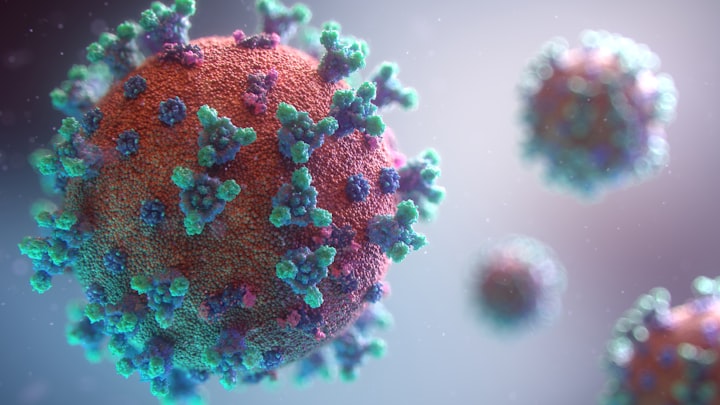The Next Covid-19 Battle Will Be About Vaccinating Kids
The Next Covid-19 Battle Will Be About Vaccinating Kids

The first two vaccines approved in the United States, one by Pfizer and Biontech and the other by Modernas, are known as mRNA vaccines which contain material from the COVID-19 virus that gives instructions to our cells how to make harmless proteins that are unique to the virus. The COVID vaccine works by teaching your immune system to recognise and fight the virus that causes COVID, and that is what protects you from contracting COVID.
More than 200 additional vaccine candidates are in development, many of which are in clinical trials. Some of them are in phase III clinical trials, the final step before a vaccine is approved.
Cuba has not released data from early-stage trials but said a phase 3 clinical trial of one of its COVID-19 vaccines, the Miami Herald, was conducted in Havana with 44,000 volunteers. Other COVID / 19 vaccine developers, including Johnson's Johnson, Moderna and AstraZeneca have said that they will eventually conduct trials on children in the United States.
Reuters reported that an early-stage study of 200 participants showed that the Covivac vaccine had no side effects. An updated analysis of their vaccine in a phase 3 clinical trial avegated that it offered full protection against severe COVID-19 cases, but serious safety concerns remain.
Pfizer and Biontech recently announced phase 3 trials that show their vaccine is safe, 100 percent effective in children between 12 and 15 years of age and triggers a robust antibody response. A prevaccine study in the US, which showed that Pfizer / Biontech Moderna in real-world conditions was 90 percent effective against COVID-19, analyzed the vaccine's effectiveness among 4,000 health care workers, first responders and other front-line workers who were among the first to receive the vaccine in the US. The study showed that the vaccine was 80 percent effective after one dose. CDC and Pfizer officials stressed that the study results, which showed vaccines were safe in children, were similar to those in adults several months ago.
Efforts are underway to get as many teenagers vaccinated as possible before schools restart in August and September. Many education officials, public health officials, and parents believe that vaccinating children against COVID-19 will play a key role in restoring normal life to time for a person to learn in fall. These permits and approvals come at a time when many vaccinated young people are already taking part in summer activities such as camping and group sports.
No one has started human trials to produce a vaccine for children in the United States and no one predicts when children will be vaccinated. Until the COVID-19 pandemic is under control, people who already received a Covid-19 vaccine must continue to follow Illinois Department of Health guidelines such as face masks, social isolation, regular hand washing and avoiding crowded, poorly ventilated rooms. At this stage, we will not be able to proceed to the Phase 5 vaccines for children under 16 until effective treatment is available; new cases for a longer period of time must be eliminated, and before we can enter Phase 5 we risk the possibility of higher cases, hospitalizations and deaths.
A growing number of doctors and researchers are signaling the alarm that the United States can not defeat COVID-19 unless they vaccinate children in human trials. Even if they do not start vaccinating soon, some may not be enrolled until the fall next year. Permar and other researchers warn that the delay in developing vaccines for children threatens the health of children and adults and that immunizing children could help stemming the spread of disease in their communities. While Americans await the arrival of a vaccine against the coronavirus, many are unaware that the vaccines developed in the US are intended for adults.
On February 2, Johnson Johnson announced it would start to vaccine children between ages 12 and 17 as part of its Phase 2A clinical trials. The vaccine is not yet approved for children under 16, but trials are ongoing. The news comes at a time when many states are beginning to allow people under the age of 16 to get the COVID-19 vaccine.
According to data released by the Centers for Disease Control and Prevention (CDC) on April 10, record vaccine puts unvaccinated young adults at risk as 4.6 million doses of the COVID-19 vaccine were administered in one day, CNN reported. Pfizer is trying to get the vaccine to children before it is approved for children under 16. In an amendment, Pfizer and Biontech requested the Food and Drug Administration to extend emergency approval for their COVID-19 vaccine to children as young as 12.
The FDA determined that its COVID-19 vaccine met the statutory criteria for an amended EEA because the known potential benefit of the vaccine for individuals aged 12 years and older outweighs known and potential risks and supports the use of the vaccine for this age group. New data released by Pfizer and Biontech show that the vaccine appears to be effective and safe for young children. The vaccine is administered in a series of two doses every three weeks in the same dosage and dosage to all persons aged 16 and over.
The FDA updated this factsheet for healthcare providers administering the Pfizer / Biontech COVID-19 vaccine, vaccine providers, recipients and caregivers with information on use of the vaccine in the adolescent population, including the known and potential benefits of the vaccine for individuals 12 years and older. By obtaining additional safety data on young teens, the FDA is extending the approval to adolescents 12 and older. Available safety data supporting the EEA for adolescents aged 12 and over includes 2,260 participants aged 12 to 15 who are participating in ongoing randomised, placebo-controlled clinical trials in the United States.
Children and adolescents have milder symptoms when they are infected with COVID-19 than adults, and they can transmit the coronavirus among themselves. In a pediatric study, the CDC and FDA examined the same two-dose therapy, three weeks apart, used in people under 16.
Clinical trials test the safety, efficacy, dosage and timing of the vaccine against the viral delta variant in children aged 11 years and 6 months: 4,500 children in the Pfizer trial and 7,000 in Moderna. Add one event at a time to the storm siren of the next COVID battle, and the time comes for children to be vaccinated as the virus advances and the school year begins.





Comments
There are no comments for this story
Be the first to respond and start the conversation.